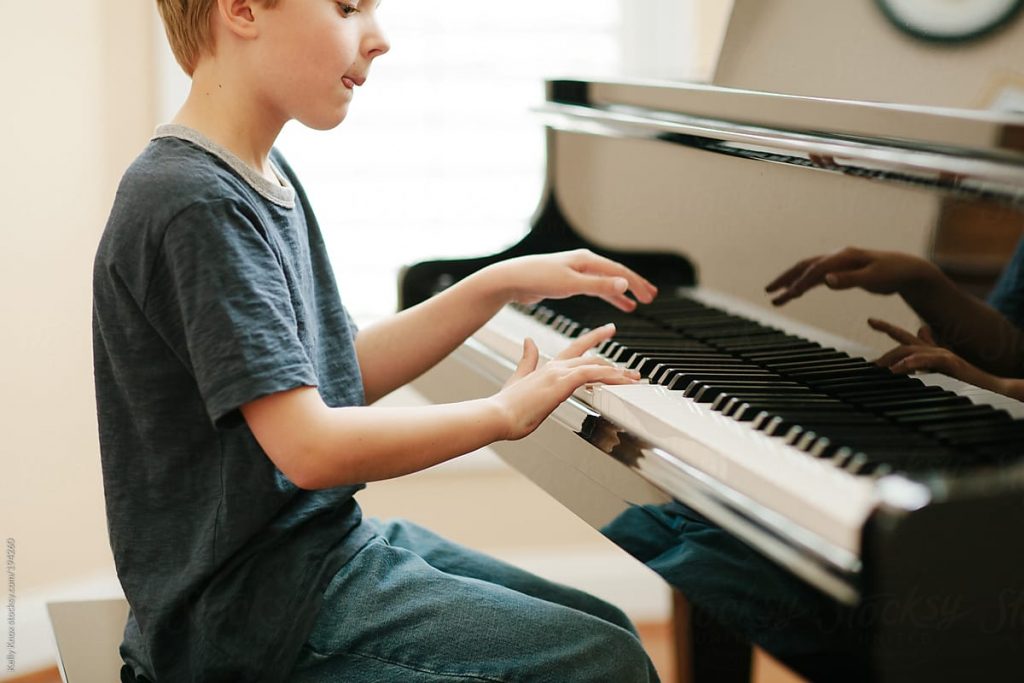Discovering Different Teaching Methods in Piano Class
When it comes to training piano, there is no one-size-fits-all method. Each student is unique and may answer a lot better to different mentor techniques. As a piano educator, it is essential to explore and utilize numerous procedures to serve to the specific needs and discovering types of your students. In this article, we will certainly dive in to some well-liked mentor approaches that can easily be helpful in a piano course.
1. Conventional Technique:
The conventional technique of teaching piano often includes structured lessons following a set course of study. Pupils know popular music theory, strategy, sight-reading, and repertoire via a combination of training publications and exercises. This approach usually focuses on suitable palm placement, fingering techniques, and music symbols. While this approach supplies a sound groundwork for newbies, some pupils may find it rigid or monotonous.
2. Suzuki Method:
Developed through Oriental violinist Shinichi Suzuki, the Suzuki approach concentrates on ear instruction and building sound from an early grow older. Trainees find out through listening closely to recordings of pieces they will at some point participate in themselves. The emphasis is on rep and memory instead than reading slab music in the beginning. This strategy motivates parental involvement in the learning procedure through frequent method at residence.
3. Orff Approach:
The Orff approach integrates action, singing, participating in percussion tools along with piano participating in to interact trainees in a all natural learning encounter. It encourages creativity through presenting improvisation and composition coming from the very early phases of learning. This strategy intends to develop rhythmic skill-sets and an understanding of ensemble playing.
4. Kodály Method:
The Kodály procedure stresses vocal as a means of developing musicianship skill-sets such as sound accuracy and inner hearing (the potential to listen to popular music inside). It makes use of solfege syllables (Do-Re-Mi) combined with palm signs to help in understanding sound connections within melodies before transmitting them onto the piano keyboard.
5. Dalcroze Eurhythmics:
Dalcroze Eurhythmics is a mentor technique that stresses the link between activity and popular music. Through rhythmic exercises and improv, students cultivate a feeling of sound, balance, and phrase. This method promotes students to actually personify the songs they are playing on the piano.

6. Collaborative Learning:
Collaborative learning involves group tasks where students function all together to discover and conduct music. This technique markets synergy, interaction, and ensemble skill-sets. Group courses may include duets, triads, or larger sets relying on the degree of the pupils included.
7. Technology Integration:
In today's electronic age, integrating technology right into piano lessons may enrich the learning experience. Trainees can utilize apps or software for ear training workout, sight-reading technique, rhythm drills, and active idea courses. Digital platforms likewise give chances for on the internet lessons or remote cooperations with various other artists.
8. Flexible Teaching:
Adaptive mentor centers on adapting guideline to satisfy personal student needs. It entails analyzing each pupil's toughness and weaknesses and conforming training procedures as needed. This technique may involve tweaking products or generating personalized workout to fit different learning designs or bodily limits.
9. Experiential Learning:
Experiential learning enables trainees to learn with straight encounters somewhat than counting only on guideline coming from the teacher. Pupils are encouraged to explore musical principles through experimentation and self-discovery under guidance coming from their piano teacher.
In final thought, exploring various training methods in piano course is important for supplying effective guideline tailored to each trainee's necessities and discovering design. Whether it is standard methods like structured courses or innovative technique like technology integration or collaborative learning, a versatile piano instructor should be available to using numerous procedures to nurture their trainees' musical growth. Through adapting teaching methods as necessary and keeping an open thoughts in the direction of new strategy surfacing in music education, instructors may produce interesting encounters that motivate their pupils' progression as pianists.
Click Here For Additional Info : 800 words
UNDER MAINTENANCE

